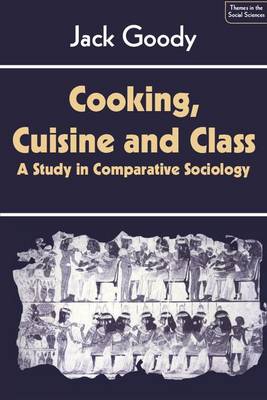The preparation, serving and eating of food are common features of all human societies, and have been the focus of study for numerous anthropologists - from Sir James Frazer onwards - from a variety of theoretical and empirical perspectives. It is in the context of this previous anthropological work that Jack Goody sets his own observations on cooking in West Africa. He criticises those approaches which overlook the comparative historical dimension of culinary, and other, cultural differences that emerge in class societies, both of which elements he particularly emphasises in this book. The central question that Professor Goody addresses here is why a differentiated 'haute cuisine' has not emerged in Africa, as it has in other parts of the world. His account of cooking in West Africa is followed by a survey of the culinary practices of the major Eurasian societies throughout history - ranging from Ancient Egypt, Imperial Rome and medieval China to early modern Europe - in which he relates the differences in food preparation and consumption emerging in these societies to differences in their socio-economic structures, specifically in modes of production and communication. He concludes with an examination of the world-wide rise of 'industrial food' and its impact on Third World societies, showing that the ability of the latter to resist cultural domination in food, as in other things, is related to the nature of their pre-existing socio-economic structures. The arguments presented here will interest all social scientists and historians concerned with cultural history and social theory.
- ISBN13 9781316040805
- Publish Date 24 June 1982
- Publish Status Active
- Publish Country GB
- Publisher Cambridge University Press
- Imprint Cambridge University Press (Virtual Publishing)
- Format eBook
- Language English
